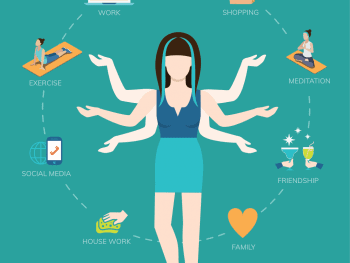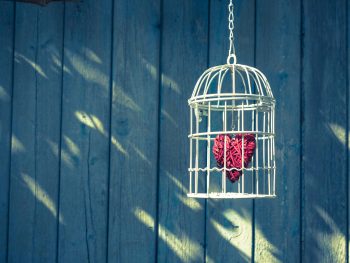I have written before about flares, which included suggestions on how to manage autoimmune fatigue. However, I feel fatigue deserves a post of its own. It is a huge topic which may even deserve a whole website of its own, but I’ll try and tackle it in this one post. I’ve dealt with fatigue for years, especially before and for a few years after my diagnosis, so much so that at one point I felt it would never ever go away, and that I would always be this ghost of a person. I felt overwhelmingly tired all of the time. My doctors had no real advice to offer me on managing fatigue other than recommending medication and rest, which really isn’t a strategy at all.
For those of you who are not sure what fatigue is, or if you have it, or if someone you care about has it, I’ll explain what the difference between tired and fatigued is.
For those of you that are not sure what fatigue is, or if you have it, or if someone you care for has it, I’ll explain what the difference between tired and fatigued is.
WHAT IS FATIGUE
Someone who feels worn out and tired, and then rests, gets a break, and feels well enough to go on with their life, is just that: tired and in need of rest.
However, someone who is fatigued is way beyond tired, and no amount of rest helps. Actually, in the past I have gotten so fatigued that even resting felt tiring! Yeah, crazy, I know. Fatigue involves a profound feeling of weakness and a tiredness that penetrates to your bones, literally. Many people experience pain with fatigue, or fatigue with pain; I am not really sure which causes which or if they simply co-exist, but fatigue is certainly there for many and adds a whole other layer of “tired.”

Fatigue isn’t merely a feeling in your body – it’s also present in your mind and emotions, leaving you feeling mentally and emotionally exhausted as well. I found it extremely difficult to follow a conversation or participate in any discussion. Reading was also very tiring and overwhelming; I recall having to reread the same passages many times since I couldn’t remember what I read just a minute earlier. Of course, this was super frustrating, and this feeling of brain fogginess was something that I just couldn’t shake. Let’s put it this way, anything more than a cheesy movie that was extremely predictable would be too tiring to follow – and I couldn’t handle watching more than 20 minutes of anything. Daily tasks were almost impossible to perform, and even the act of showering could be so exhausting that I felt I needed a good two-hour nap to recover from that. Cooking or cleaning or going anywhere was out of the question – it was simply too much. And just when you think you’re feeling better and attempt to do something, the crushing fatigue comes back with a vengeance and you’re back in bed.
Emotionally, fatigue can be very draining as well. Not only do you feel too exhausted to perform your day-to-day tasks, but you also feel depressed and completely defeated. So even a minor worry or issue that crops up in the course of the day – one that’s usually not a big deal if you’re feeling well rested – suddenly feels like it’s too much to handle. Let’s just say it’s the pits.
WHAT TO DO ABOUT IT
So now that I have given you an idea how fatigue feels , I’ll list a few things on what you can about it.
I hate to break this to everyone out there but there is no shortcut to managing fatigue. There is no cutting corners if you want to conquer it. It is a processes and can be a lengthy one, spanning a few months at least. The good news is that if you stick to a few tried and tested ways you will become a pro at managing fatigue and may even succeed to keep it at bay for the better part of your life. Even if following these steps doesn’t completely eradicate it, it will ensure that when it does strike it will be milder and in all likelihood pass fairly quickly—meaning it will take only a few days vs. months.
STICK TO A ROUTINE
Yes, routine. I know this sounds boring but routine is extremely helpful. Our bodies and minds actually thrive on routine. You probably already have a routine that you have naturally fallen into, which isn’t necessarily a good routine. In a nut shell, a good routine consists of approximately same bed time and same wake up time every day—this means even on the weekends. Feeding yourself well and when hungry, hydrating properly and regular exercise/activity and rest periods.
PRIORITIZE SLEEP
Sleep is so important for any number of reasons. Good mental health, weight management, energy levels, regeneration of our bodies and minds and much more. Making sure you are getting quality sleep and enough of it is very worthwhile doing and a key strategy in managing fatigue.
Ideally you should get yourself to sleep between nine and ten . I do this regularly, even if I’m not feeling very sleepy. I will get into my bed well in advance of actual sleep and read or meditate or even journal, but no screen time, zero. I switch off screens well before I am ready to go to sleep. You too should switch everything off and put it away from your bed. Once I am in bed, relaxing, I find that within half an hour, or hour at most, I am ready to get to sleep. I usually rise around 7, which gives me a solid 8-9 hours in bed. Keep in mind, if you have to wake earlier, you’d need to get to bed a bit earlier, so that you are getting at least 7 or 8 hours of sleep time. At first this may be a difficult task, but the more you do this the more your body will get used to this new bed time and wake up time. You can do this in increments, especially if you are a “night owl”. Start moving your bed time to an earlier time by 15 to 30 minute increments steadily over a few weeks until it feels more natural to go to bed at an earlier time. You will see your energy improve during the day considerably. One more thing to keep in mind when managing fatigue is to avoid napping during day. Unless you are in a flare or recovering from a prolonged one, avoid it. Rather take some time and just rest without actually sleeping. Do a five minute meditation, sit down with a cup of tea, relax and rejuvenate, however if you absolutely must nap, make it super short, 10 to 20 minutes at most is plenty and don’t make it a habit. Keep naps before 3 pm, anything after would probably impact that night time routine and make getting to sleep at a reasonable time a problem.
EAT WELL
I’m all about nourishing myself, and for good reason, it’s literally the fuel our bodies run on, and what fuel I use, I get back in performance. Eating processed or not nutrient dense meals will result in poor performance, body and mind, and will make managing fatigue that much harder.
Keep diet simple and as nutrient dense as possible. Which translates to high fibre, high quality lean protein, beneficial fats, low starch and sugar and plenty of water. When I say starch, I mean white rice and white bread and pasta, but feel free to starch it up with sweet potatoes, pumpkins and squashes all you want! Stick to things that are easy, food doesn’t have to be complicated. The options are endless: wraps, dips, soups, stews, veggies, fruit, whatever you may fancy, but keep it fresh and whole foods all the way. Avoid any pre made or packaged items if you can for at least 80% of the time, but aim higher! Have solid meals during the day, at least two, and at least two good snacks. Eat when hungry, and your body will fall into a routine with those hunger cues as well.
If you are not sure of your hunger cues, whether you are truly hungry or just thirsty , or maybe emotional, you might want to check out my post on mindful eating here that will help you figure it out.
HYDRATE AND LIMIT CAFFEINE
I know that words “limit caffeine” are scary to some, but hear me out. Relying on coffee to get you trough the day is not a great strategy for managing fatigue, because it doesn’t really work—in fact it may make matters worse. So when I say limit caffeine what I mean is, you can have one cup in the morning but stop there, and before you have that one cup, have some water first. Having multiple cups of coffee a day will dehydrate you, make you more tired in the long run and will impact your sleep, especially if you are having a cup around the 3 pm and after. For every cup of coffee you have you should replenish with about 2 cups of water to compensate. It is a diuretic which means it depletes you of water in your body and this isn’t a good thing. We are literally made of water, about 60% of our body! Not coffee, not colas or juices, but plain old water. You need it to function, all your organs and body processes depend on adequate water, so fill up on it. One good strategy is to have a nice bottle always with you, and once its empty, refill. Carry it with you always and keep hydrating. If you are not a fan of water, you can make herbal teas, have them chilled or warm, it all counts, as long as they are caffeine and sugar free. You will have multiple benefits, you will not crave coffee as much, you will feel more energized, you will improve your digestion and elimination, and so much more.
REGULAR EXERCISE
This seems counter intuitive maybe when thinking about fatigue, but it isn’t. It works on many levels and you should incorporate it in your life and make it a priority. So how do you start exercising when completely wiped out by fatigue? Start really slow, even if you have to do in bed, it doesn’t matter, just do it. Move you body for 10-15 minutes a minimum of 3 days a week, but do aim for 5 and have days in-between to recover. You can start with very gentle stretching, one body part at a time, and by just walking around. Work your way up. Build your stamina until you can manage a gentle yoga flow for example and then work up from there until you reach a level you are comfortable with. Don’t over estimate yourself, rather underestimate at first and see what your body can take at any given time, and respect that. In the long run it will seriously help you keep fatigue away and manage better when you are feeling down.
Implementing all of these strategies over a period of time will help you feel much more energized, both physically and mentally. It will also help you remain that way if you persist with it as a lifestyle choice rather than just as a short term plan.
Stay nourished,
Sanja
Photo by Rui Silva sj on Unsplash









 Celeriac Paleo Soup
Celeriac Paleo Soup